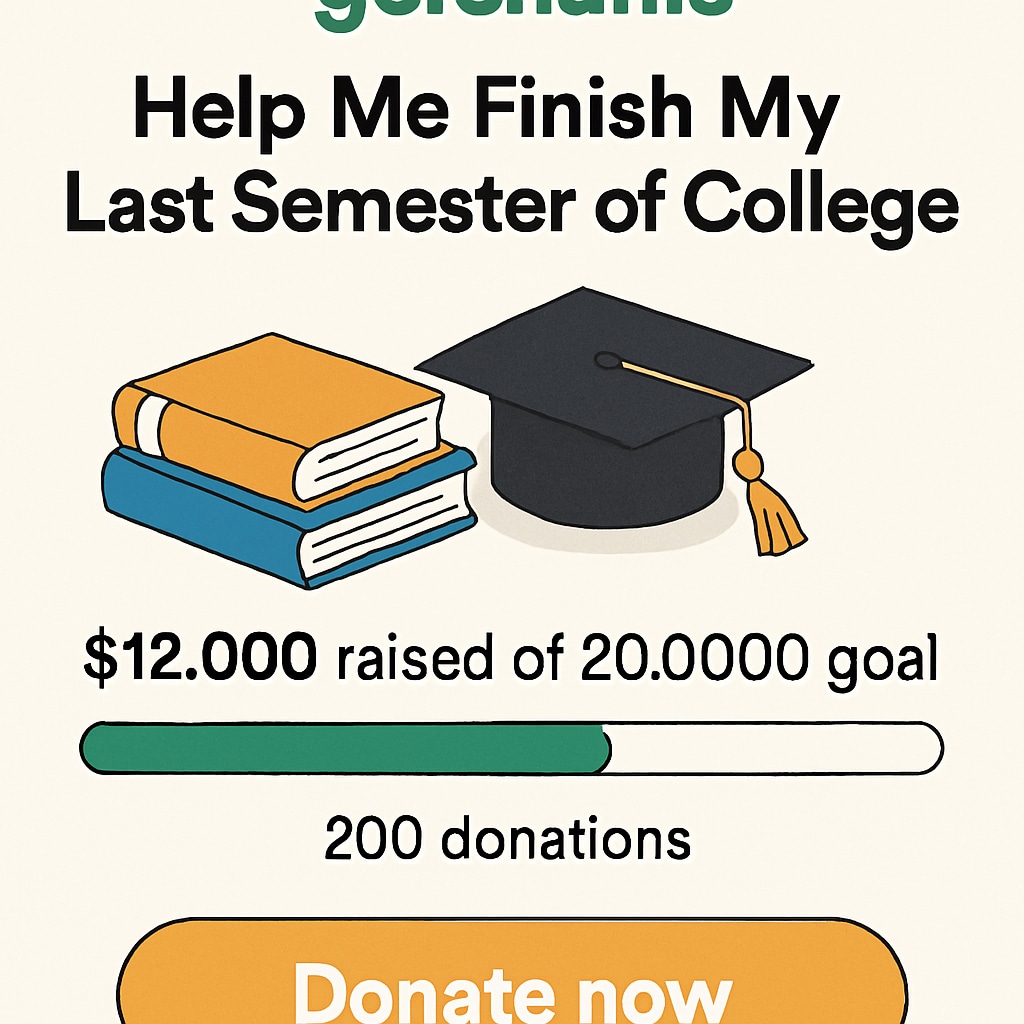In today’s world, the dream of higher education often comes with significant financial barriers. A recent case of a university student turning to GoFundMe to complete their final semester and pursue medical school sheds light on the growing education funding crisis. This compelling story reveals how economic difficulties can obstruct even the most promising students, urging society to reconsider how educational funding systems operate.
Financial Struggles in Higher Education
For many students, the cost of university tuition is overwhelming, particularly for those from low-income backgrounds. According to Wikipedia’s report on student loans, U.S. college students often graduate with significant debt, limiting their financial freedom and career prospects. This is especially concerning for students pursuing demanding fields like medicine, where additional years of education compound the costs.
In this specific case, the student—an aspiring medical professional—found themselves unable to pay for their final semester due to unforeseen financial hardships. While scholarships and loans provide some relief, they often fail to address the nuanced needs of individual students. For some, crowdfunding platforms like GoFundMe become the last resort.

GoFundMe: A Lifeline or a Symptom of Systemic Issues?
Crowdfunding platforms like GoFundMe have gained popularity as a solution for students facing financial crises. While these platforms provide an immediate lifeline, they also highlight systemic flaws in education funding. Should students have to depend on public donations to complete their education?
In addition, relying on crowdfunding raises ethical and logistical questions. For example, some students may struggle to gain visibility for their campaigns, while others may face stigma for seeking public financial assistance. A more robust and equitable education funding system could eliminate the need for such measures altogether.

Building a Fair and Forward-Thinking Funding System
To address these issues, policymakers, educators, and society at large must work together to create fair and accessible funding mechanisms. Here are some potential approaches:
- Expand Need-Based Scholarships: Increasing the number of scholarships allocated based on financial need can help students focus on their studies rather than their financial burdens.
- Reform Student Loan Systems: Lower interest rates and flexible repayment plans can make loans less crippling for graduates.
- Introduce Universal Education Grants: Providing grants that cover a substantial portion of tuition fees can help level the playing field for all students.
- Community Support Programs: Local governments and organizations could introduce mentorship and financial support programs tailored to individual needs.
Such measures ensure that students with talent and ambition, like this aspiring medical student, are not held back by financial barriers.
The Long-Term Impact of Equitable Funding
Beyond individual cases, equitable education funding has broader societal benefits. Graduates free from overwhelming debt can contribute significantly to their communities and economies. For instance, Britannica’s analysis of higher education highlights its role in fostering innovation, improving public health, and reducing unemployment rates.
Furthermore, supporting students in fields like medicine ensures a steady flow of professionals equipped to address critical health challenges. Investing in education is not just a personal or economic decision; it is a societal imperative.
As we reflect on this student’s story, let it serve as a catalyst for change. It is time to move beyond temporary solutions like crowdfunding and invest in sustainable systems that empower all students to achieve their full potential.
Readability guidance: Use short paragraphs and lists to summarize key points; ensure smooth transitions between sections with connectors like “however,” “therefore,” and “for example.”


